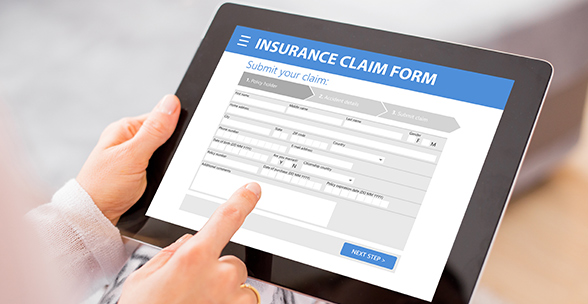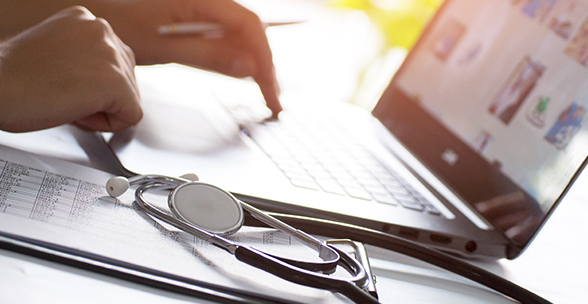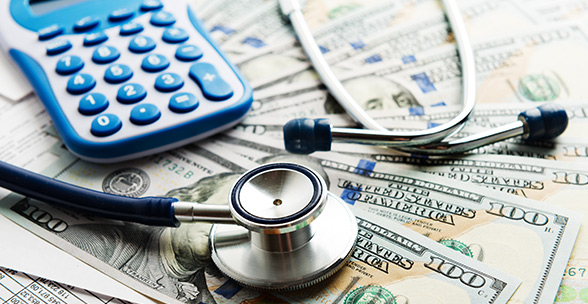7 Reasons You Need a Mobile EHR
According to a survey by Physician’s Practice, 72% of practices expect to invest as much or more on new technologies over the next year than they have in the past. One of the likely targets of this increase will be mobility, with 91% of physicians demanding mobile EHR access according to Technology Advice. The desire for mobile EHRs has grown steadily because every moment matters:
- The moment you need to send a script when you’re away
- The moment you want to verify allergies
- The moment you’re walking into the exam room
- The moment you want to share a result face-to-face
Let’s look at seven reasons why you need mobile EHR access in your practice along with several tips you can use to maximize results and efficiency.
#1 – Location Independent Data Access
Before mobile EHR access, physicians had to stop by their office to access the EHR and review a patient’s referral, health history and other relevant information. Utilizing mobile access allows you to update clinical documents in the EHR from the field, and speeds up the healthcare process.
With mobile EHR access, you can use a tablet, smartphone or even your Apple Watch to not only enter but also access critical patient information from any place at any time. No matter where you are, you have the vital information you need to make the best treatment decisions possible using the most up-to-date patient data.
#2 – Higher Patient Satisfaction
Updating an EHR in the presence of a patient can be distracting and intrusive for both the physician and If you spend most of your time entering data into a computer, it makes the visit less personal; patients feel less engaged and therefore less satisfied, and you are left feeling frustrated that your new system is actually slowing down your clinical workflow rather than streamlining it.
A recent study supports this, showing that doctors who enter data into computerized health records during patients' appointments do less positive communicating, and patients rate their care excellent less often. This makes making eye contact with patients vital, because patient satisfaction scores now play a larger role in physician quality scores, which affect your bottom line.
Voice to text features as well as the proximity to patients that mobile EHRs allow creates a better exam room experience. Using a tablet to input data and update patient charts allows you to focus more on the patient and less on the computer. One study even showed that almost 96% of patients believed that they could talk as easily to their doctor who was using a tablet as they could without it.
#3 – Better Decision Making From Anywhere
An EHR with mobile access allows you to stay connected to your practice. Wherever you are, you won’t be flying by the seat of your pants asking about allergies, medicationsor illnesses. You’ll have it all right in front of you.
When you’re caring for patients, you need the most accurate and current data possible regarding their medical history. With a mobile EHR, you have every patient’s medical history available at your fingertips. Better still, on cloud-based EHRs updating or altering a record on one device will cause that information to transfer across all devices, mobile or otherwise.
In an interview for Medical Economics, Joseph Kvedar, MD, founder and director of the Center for Connected Health, a division of Partners HealthCare in Massachusetts, recounts an example of talking to a nurse from his car about a patient who needed a medication change. Because the nurse had access to the medical record at the facility, she could relay that the patient was in kidney failure and shouldn’t take the medication Kvedar originally suggested over the phone.
“If I were elsewhere [besides the car] and had all that information on my tablet, it would make me a better clinician,” he says. “So having features that go into helping you make better decisions about a patient available in a mobile format is really powerful because it’s going to improve quality and lower the error rate.”
#4 – Improved Practice Communication
Internal communication can make or break a practice. You must be able to contact your staff and have access to the same information they have. With a mobile EHR, you not only improve access for all staff members but also guarantee that sharing of patient records is easier and more efficient.
#5 – Transformed Patient Experience
Another advantage of mobile EHRs is the ability to document faster than ever and bring your patient along the journey with you using color images, easy documentation and patient-friendly drawings.
By showing patients images such as scans, educational diagrams or charts displaying certain health metrics (such as their blood pressure or weight over time), you can get them more involved in their health and transform your patient experience.
Although it is possible to do the same on a laptop or desktop computer, it’s much easier and smoother on a hand-held device.
#6 - Improved Data Accuracy
Data accuracy is vital in any healthcare situation and mobile device allow more patient data to be captured at the point of care, eliminating the data entry errors that occur when clinical notes are first recorded on paper and entered at a later time into the EHR.
#7 - Improved Patient Care
As with everything in healthcare, the ultimate goal is to improve patient care. What if you could be alerted when you prescribe a drug that the patient may be allergic to or that negatively interacts with another drug that the patient is already taking? Mobile EHRs offer these kinds of clinical decision-making support tools that ensure you are providing patients with the best treatment plans.




















